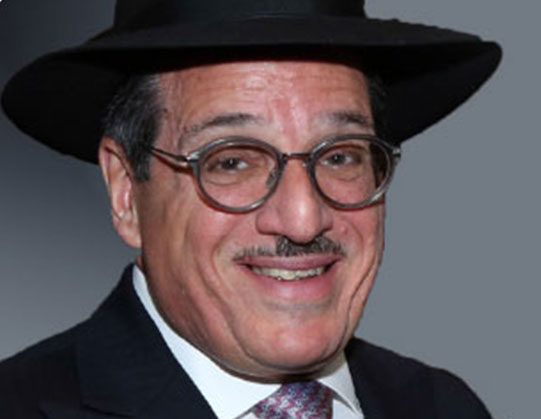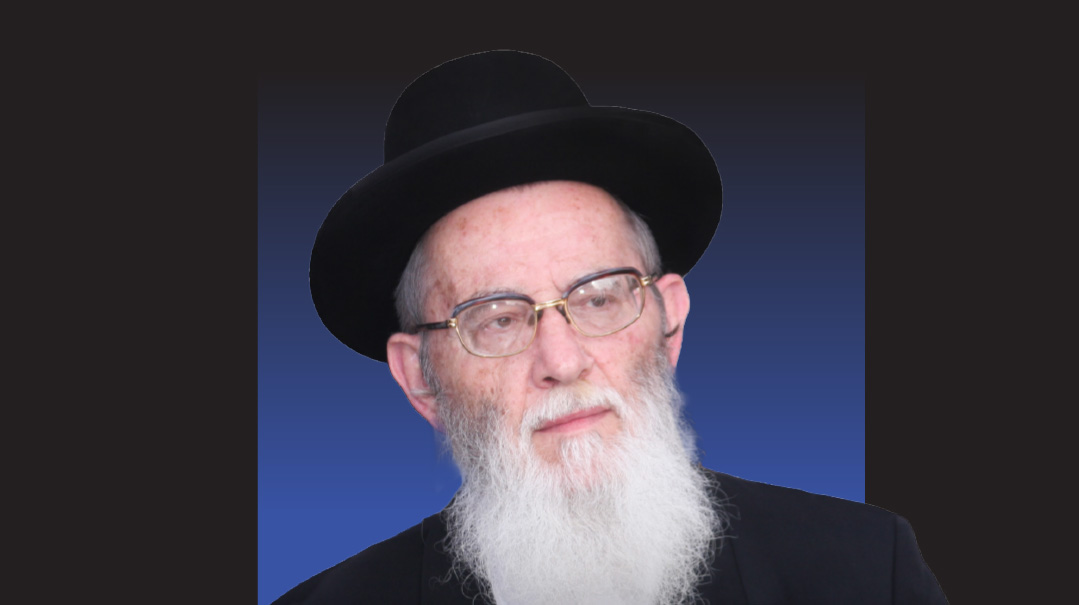Who Will Care for the Kids?

F
or so many of us, Tishah B’Av is difficult to internalize.
Klal Yisrael has suffered many losses over the years. While some took place many hundreds of years ago, the devastation and destruction is far more personal for those of us who grew up in the shadow of the Holocaust, with the knowledge that our own family members were subjected to unspeakable horrors.
As we sit in shul year after year on Tishah B’Av listening to the words of Eichah and saying kinnos, we still struggle to connect the Churban to our everyday lives, and so we focus on smaller losses, the pain and desolation that, Chazal teach us, all find their root in the lack of the Divine Presence that departed with the destruction of the Batei Mikdash.
This year, less than three months after the incomprehensible death of my dear friend Mendy Klein a”h, many in Klal Yisrael can relate to the pain of Tishah B’Av more keenly.
Much has been written about Mendy since he left us on Lag B’omer. Just as people often discuss where they were when they heard about the JFK assassination or the September 11 attacks, for many of us, the moment we heard of Mendy’s death will be forever emblazoned on our hearts. Mendy was the best kept secret in Klal Yisrael, an unstoppable force who shook heaven and earth with his efforts on behalf of the tzibbur — efforts that went far beyond the financial.
Specifically during the summer, I find myself wondering: Who will worry about our children at this time of year?
Mendy cared about our children. His initial efforts on behalf of at-risk youth began in his hometown of Cleveland, and Divine Providence would later arrange for him to meet Zvi Gluck, who was leading the crusade against abuse and addiction in New York. In a modern day Kamtza–Bar Kamtza mix-up, Mendy accidentally texted an invitation to a high-profile meeting in Manhattan to Zvi Gluck instead of another of his contacts, but then, to avoid any potential embarrassment, loudly proclaimed Zvi’s attendance as critical to solving the problems that were rapidly claiming the lives of all too many Jewish young adults. That unplanned meeting led to another intentional one that took place in my home and ultimately resulted in the launch of Amudim.
Did any of those present at what would later be fondly referred to as “the Werdiger basement meeting” dream that in just four years, Amudim would help 4,800 clients at multiple offices, and spawn several large-scale projects that would benefit countless others? Amudim’s success came as a complete surprise to everyone — everyone except Mendy.
Mendy knew. He always knew. He knew because he dreamed big and because he cared so very deeply. Every story he heard, as he spent countless hours speaking with those who were struggling, touched him personally. Mendy took the pain that enveloped their souls — and his, by extension — and channeled it in another direction: finding ways to solve those problems. Whether it was childhood abuse or addiction — to drugs, alcohol, gambling, Internet, or anything else — Mendy tenaciously refused to accept the status quo. He would push, prod, and do whatever it took to make things happen. He couldn’t accept suffering and had no patience for anyone who could.
Mendy’s tough exterior masked an oversized heart that wept daily for those who were hurting, driving him to find solutions no matter how impossible a situation seemed. Brought face-to-face with unspeakable pain and suffering, the likes of which he had never seen before, Mendy stepped up to fill the void, driven relentlessly by the need to help those whose personal torment had drawn them into unfathomable darkness.
New cases that came into the fledgling Amudim organization highlighted the need for additional programs and divisions that would help the broken souls who were reaching out to Amudim in droves. Shattered as he was by the knowledge that 80% of the nearly 400 suicides and accidental overdoses reported to Amudim over the past three years were victims of childhood molestation, Mendy started Project HEAL to address these traumas, offering subsidies to those who could not afford what was literally life-saving therapy.
Understanding that summertime was a veritable minefield for those who tended to slip through the cracks during the school year and that these kids were more likely to be hurt during the summer months prompted him to become heavily involved in Gavz Boyz, a division of Amudim offering a multi-week camp experience for at-risk boys, where positive influences and therapies are integrated into a high-adrenaline itinerary. And having seen for himself that American yeshivah and seminary students often found themselves wrestling with unresolved issues during a year of study in Eretz Yisrael, Mendy spearheaded the opening of an Amudim office in Jerusalem. As always, Mendy’s instincts were on the money, with 100 new cases opened by Amudim Israel since its launch in November 2017.
And Mendy was never content to rest on his laurels. Having already accomplished the impossible several times over by getting the Jewish community to admit that abuse and addictions were problems that needed to be acknowledged and remedied, he continued to campaign tirelessly for the broken souls out there, championing their cause and refusing to let their plight be overlooked. E-mails written by Mendy at 2 a.m., 3 a.m., and beyond were commonplace. How could he sleep when acheinu Bnei Yisrael were hurting? Mendy was on a never-ending quest to continue saving Klal Yisrael, one kid at a time, giving a piece of his heart to every tortured soul he met. This came as no surprise to anyone who knew him. That was just Mendy being Mendy.
Despite becoming increasingly involved in helping those who were suffering, Mendy managed to keep his family his number one concern. His dedication to his eishes chayil, Ita tblc”t, was legendary, and his children and his grandchildren all knew that despite his many commitments, they were still his highest priority.
Even as the unthinkable news spread on Lag B’omer, it was obvious that Mendy’s heart would continue to beat on in This World even as he was called back to serve Klal Yisrael from a different realm. His legacy lives on through his family, through Amudim, and through the many organizations and individuals who were drawn to the cause of at-risk kids through Mendy’s efforts. Much as we sat on the floor on Tishah B’Av very much feeling the pain of Mendy’s departure from This World and the torment of the brokenhearted, we hope and pray that Shabbos Nachamu and its promise of Heavenly comfort will herald the fulfillment of Mendy’s dream: eradicating the scourge of abuse and addiction from our midst.
Originally featured in Mishpacha, Issue 721. Mr. Shlomo Werdiger is chairman of the board of Agudath Israel of America
Summer Safety
- Educate your children to speak up if someone makes them feel uncomfortable at any time. Let them know that they will never be punished for sharing their feelings.
- Teach your child that it is never okay for someone other than a trusted safe person, like a doctor, to touch areas of the body covered by a swimsuit. Anyone who does should be reported to a trusted adult.
- Make sure your child is in a camp that takes safety seriously. All staffers should have participated in a reputable training program. Children should always know who they can speak with should a potential problem arise.
- Support your children if they say they were abused. Make sure they know they are not to blame and that you believe in them.
- Get help from a qualified professional if you suspect that your child has been abused.
Israel Safety
- Prepare your teen with coping skills for moments when they are feeling homesick, stressed, or otherwise overwhelmed, so they can address the underlying issue instead of heading down the slippery slope of using drugs or alcohol to escape reality.
- Peer pressure can lead kids in dangerous directions. Make sure your teen has the confidence to opt out of activities or behaviors that can lead to danger.
- Have your teen identify trusted adults in their school they can speak with about difficult issues.
- Warn your teen that while vaping may seem harmless, the inherent nicotine levels in electronic cigarettes make them addictive, and they have been linked to an increased risk of smoking and drug use. Particularly dangerous are JUULs, which can have twice the nicotine of conventional cigarettes.
- Advise your teen that alcohol, drugs, and vaping have all been proven to have permanent and destructive effects on the brain, which continues to develop until age 25.
Originally featured in Mishpacha, Issue 721. Eytan Kobre may be contacted directly at kobre@mishpacha.com
Oops! We could not locate your form.













